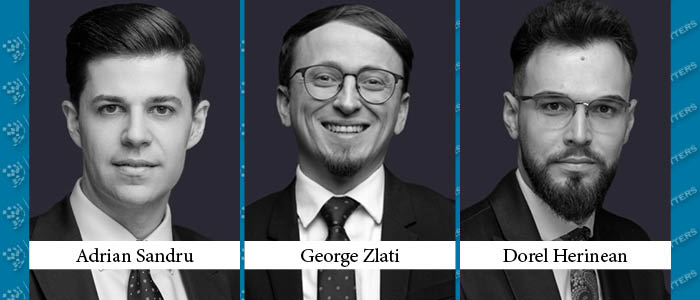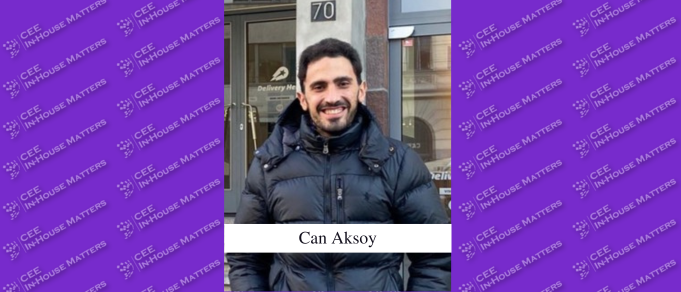In a recent and widely-reported decision of significance for employers across the European Union, the Grand Chamber of the European Court of Human Rights has reversed a previous decision of the Chamber and ruled that companies can monitor their employees’ email only if the employees are notified in advance.
The Grand Chamber's September 5, 2017 decision in the case of Barbulescu v. Romania, centered on claims made by a Romanian, Bogdan Mihai Barbulescu, that his Romanian employer’s accessing and review of his private conversations on a Yahoo Messenger account that had been created to allow him to communicate with clients had violated Article 8 of the European Convention on Human Rights, which provides a right to respect for one's "private and family life, his home and his correspondence."
The Grand Chamber’s ruling reversed not only the January 12, 2016 decision of the Chamber (which had concluded that “it is not unreasonable for an employer to want to verify that the employees are completing their professional tasks during working hours”), but also previous rulings against Mr. Babulescu in Romanian labor courts. In its ruling, the Grand Chamber ruled that measures taken by employers to monitor employees’ communications must be accompanied by adequate and sufficient safeguards against abuse, and that courts reviewing such measures should determine whether the employee had been notified of the possibility that the employer might take measures to monitor correspondence and other communications, and that such measures had been implemented.
Mr. Barbulescu was represented in the ECHR by Romanian attorneys at law Emeric Domokos-Hancu and Ovidiu Juverdeanu. Domokos-Hancu – a Partner in Schoenherr Romania's dispute resolution practice group – agreed to answer some of our questions about the case.
CEELM: Did you represent Mr. Barbulescu throughout the process - i.e., in the Romanian courts first, all the way up through the Grand Chamber of the European Court of Human Rights?
E.D.H.: My colleague Mr. Ovidiu Juverdeanu was Mr. Barbulescu's attorney at law ever since the early stages of this 10-year saga. He assisted Mr. Barbulescu in the original case before the Romanian courts. I came on board in 2008 when Mr. Barbulescu decided to take his case to the European Court of Human Rights.
CEELM: Is this your first appearance before the European Court of Human Rights?
E.D.H.: Yes, it was my first case before the European Court of Human Rights. This was a highly motivating professional challenge for me, given the potential implications of the court's decision on how employment relationships would look in the future.
CEELM: Did Mr. Barbulescu want to challenge his termination in court immediately, or did he decide to do so at a later time?
E.D.H.: Mr. Barbulescu decided to challenge his employer's decision immediately after his employment was terminated. On the one hand, he felt that his right to privacy had been violated, that his employer had been monitoring his communications with the sole purpose to illegally gather evidence for terminating his employment. As demonstrated by the recent decision of the European Court of Human Rights, this monitoring was indeed illegal; it lacked transparency and was disproportionate with any potential interest that could have been claimed by the employer. Mr. Barbulescu also felt deeply wronged, as his employer applied the most severe sanction available (i.e., employment termination) without considering any other facts. In imposing this sanction, the employer did not take into account the fact that not only had Mr. Barbulescu never been sanctioned before, but he was a top performer and one of the most efficient employees of the company.
CEELM: Can you run us through a time-line of the process? When was Mr. Barbulescu fired from his job, and when did he file suit?
E.D.H.: Mr. Barbulescu was fired in 2007 and he immediately challenged his employer's termination decision before the Romanian courts. The proceedings lasted roughly a year and a half and covered the original case before Romanian labor courts, including appeals, as well as a criminal complaint filed for the violation of privacy for the company’s accessing of Mr. Barbulescu’s private correspondence. In all these instances, the Romanian courts failed to correctly identify the actual facts and decided against Mr. Barbulescu. Faced with the failure of the courts to properly apply domestic law, including the provisions of the Convention for the Protection of Human Rights and Fundamental Freedoms, Mr. Barbulescu decided to seek justice before the European Court of Human Rights.
CEELM: Why, in your opinion, did the Grand Chamber find differently than the Chamber? Were you surprised?
E.D.H.: We were not surprised that the judgement of the Grand Chamber was different than the Chamber’s. Save from the dissenting opinion in the Chamber judgement, the majority failed to identify the relevant facts of the case, leading to an improper application of the Convention for the Protection of Human Rights and Fundamental Freedoms. In the dissenting opinion in the Chamber judgement it was the first time that a correct assessment of the facts led to the accurate conclusion that Mr. Barbulescu's right to a private life had been violated by his employer.
It was based on the dissenting opinion in the Chamber judgement that we filed the referral to the Grand Chamber. It represented a starting point to show the importance of the matter and the overall impact of the judgement. We highlighted that the Chamber’s judgement was a step back, contradicting the Court’s previous case law in similar matters – for instance, the case of Copland v. the United Kingdom and the case of Halford v. the United Kingdom, which are some of the previous case law that we used to sustain Mr. Barbulescu's case.
This is why we were not surprised by the Grand Chamber’s judgement, which was in line with previous decisions. Thus, the majority rules that certain principles have to be observed when monitoring employees' communications and that the right to a private life has to be protected at all times, including in the context of employment relationship
CEELM: In general, would you characterize Romania as, on balance, protective of individual privacy rights?
E.D.H.: Romania has undertaken some steps to ensure the protection of privacy rights and has regulated the right to privacy in its most important piece of legislation – the Romanian Constitution. However, it has not fully regulated the right to privacy in employment relationships, especially considering the development of communications in the digital era.
Furthermore, as shown in this case, despite the laws in place aimed at securing the right to privacy, Romania has failed to protect this fundamental right. It also failed to give proper satisfaction to Mr. Barbulescu when he complained before the domestic courts that his right to privacy had been violated.
Given that we are dealing with a fundamental right, protection cannot be only theoretical, but it needs to be effective.
We hope the decision of the European Court of Human Rights in the case of Barbulescu v. Romania will lead to a shift in Romanian case law and that domestic courts will pay much more attention when it is claimed that fundamental human rights have been breached.
In this particular case, if the domestic labor courts had identified the correct facts and had properly applied the provisions of the Convention for the Protection of Human Rights and Fundamental Freedoms, they would have reached the natural conclusion that the evidence to sustain Mr. Barbulescu's employment termination had been illegally obtained. In this case, the Romanian courts' ruling would have said that the employer had breached Mr. Barbulescu's fundamental right to privacy and the secrecy of private correspondence. Then, the case would have never gone to the European Court of Human Rights.
In your opinion, what is the ultimate significance of the Court's ruling?
E.D.H.: The decision of the European Court of Human Rights in the case of Barbulescu v. Romania acknowledges that the right to privacy in the workplace does exist. For Bogdan Mihai Barbulescu this decision comes as a ray of light, and on a general level it actually represents much more than this – it means that a person's right to privacy does not end once that person enters his/her workplace. Moreover, the Court correctly ascertained that large parts of social, human, professional, and personal relationships are in fact initiated in workplaces.
We anticipate that the decision of the European Court of Human Rights will raise awareness amongst the companies operating in Romania regarding their obligations to encourage employment relationships that are based on respect for their employees' right to private life. Employers need to inform their employees of any employee communication-monitoring measures, they need to protect the information obtained by such measures, and, in any case, they need to take measures against employees only after carefully balancing the company's legitimate interests and its employees' rights.






























